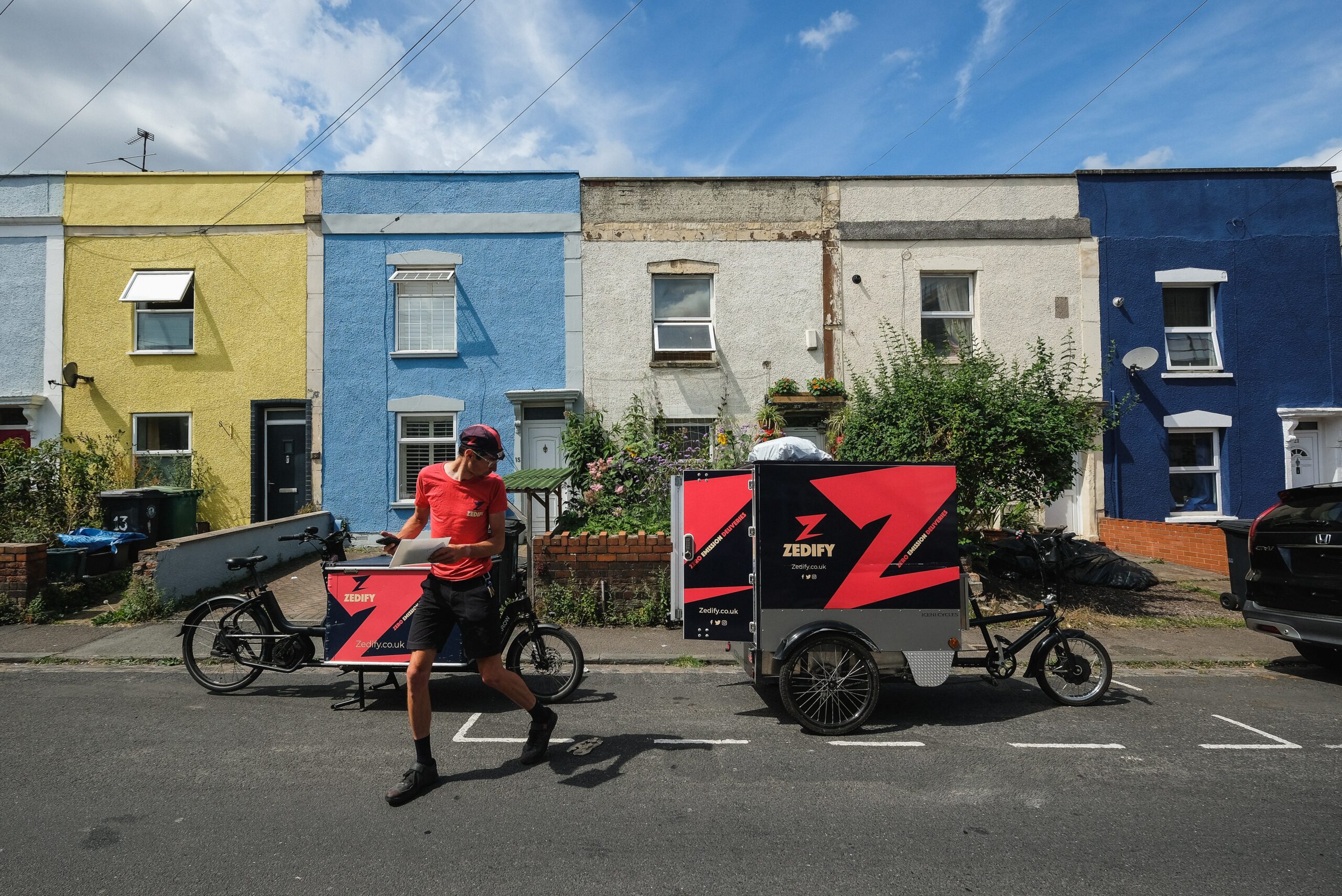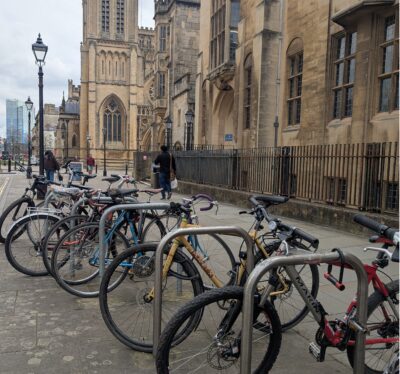
Examining how cycling can contribute to realising 15-Minute Cities in low-density, suburban neighbourhoods
In Bristol, the SPECIFIC project will look at reconfiguring depots for e-bike delivery of goods. The locally active bike delivery firm, Zedify, and city partners are keen to understand how depot decentralisation can help e-bike delivery to replace van use for local deliveries. The transition experiment will involve decentralisation of Zedify’s freight depots in the city into a network of micro-consolidation hubs. Different hub designs will be tested and learning will concentrate on which designs work in different circumstances.
More about the projectAbout 15-minute cities
In a 15-minute city, individuals can fulfil their daily needs within a short walk or bike ride from their home.
Those basic needs include, among others, paid or unpaid work, education, childcare, healthcare, groceries, entertainment, and recreation.

Increasing sustainable proximity to daily activities is more important than the duration of the walk or bike ride.
For some cities, 15 minutes is a sustainable proximity, whereas for others it may be 20 or 30 minutes. The overall aim is to enhance quality of life by bringing the activities individuals need to flourish closer to their homes.

The 15-minute city is also a smart city.
Where short travel times on foot or by (e-)bike are not feasible, high-quality and inclusive online services and activities should offer a suitable alternative.

Who What When Where Why (and How)

What: Testing the feasibility of making last-mile deliveries to the suburbs using e-cargo bikes rather than electric vans
Who: Zedify (last-mile delivery firm), working with Bristol City Council
How: Trialling two different options for replenishing riders with deliveries mid-route allowing them to continue further into the suburbs
Why: Deliveries made by e-cargo bikes will reduce their environmental impact compared to current (e-)van operations
Where: Inner-suburbs in South Bristol characterized by lower density populations than the city centre and high diversity in social grades
When: September 2024 – August 2025


